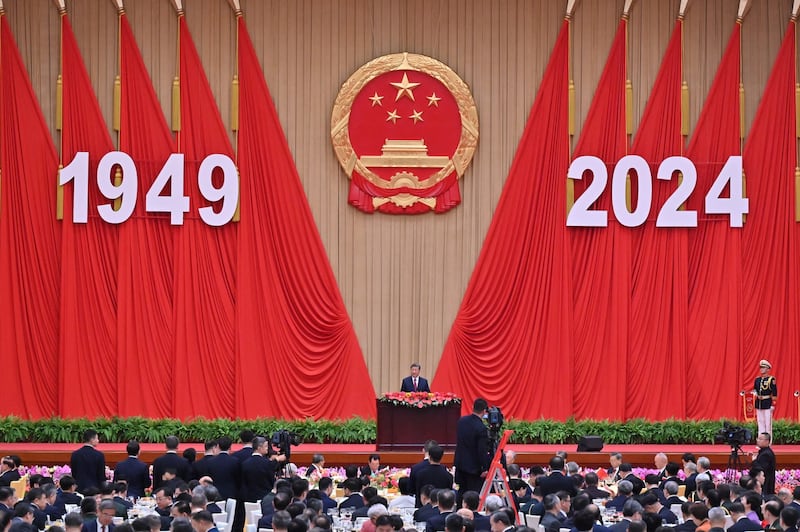Authorities in the Chinese capital are stepping up security measures ahead of celebrations of the 75th anniversary of the People's Republic of China on Tuesday, slapping restrictions on who may enter the city, rights lawyers and activists told RFA Mandarin.
Police have been following rights activists and lawyers, detaining their family members, or preventing them from entering Beijing, while the phones of outspoken journalist Gao Yu remain blocked ahead of the National Day holiday, they said.
The moves form part of China's " stability maintenance" operations, which kick in ahead of politically sensitive dates or major events, in a bid to stave off potential threats to the ruling Chinese Communist Party before they can occur.
One of the first to be targeted was Li Wenzu, the activist wife of prominent rights attorney Wang Quanzhang, who was detained on entering Beijing in recent days, Wang told RFA in an interview on Monday.
"Li Wenzu got back to Beijing from out of town a few days ago, and was stopped by police at the railway station," Wang said. "They detained her in the police station on the pretext of checking her ID."
"This was because Oct. 1 is a major holiday," said Wang, in a reference to China's National Day, which marks the founding of the People's Republic of China by late supreme leader Mao Zedong on Oct. 1, 1949.
"She was detained for a few hours, before being picked up by officials from the local government [where we live]," he said. "Li Wenzu has been to Beijing dozens of times in the past and has never been stopped or had her ID checked."
"It shows that they've stepped up their so-called stability maintenance operations," Wang said.
Wang said he was also followed by state security police for 50 kilometers while driving away from Beijing on Sunday.
RELATED STORIES
[ China calls on Hong Kong tycoons to help kickstart national economyOpens in new window ]
[ China cuts off internet, phones of outspoken journalist Gao YuOpens in new window ]
Independent political commentator Ji Feng, a former student leader of 1989 pro-democracy movement on Tiananmen Square, said he has been barred from entering Beijing.
"I'm currently in Yanjiao," Ji said, referring to a town just outside Beijing city limits in the northern province of Hebei. "Beijing is just across the river."
But Ji, who once lived in Beijing but was exiled to his hometown in southwestern Guizhou province in June 2023, has been warned off trying to cross the bridge by state security police.
"They straight up told me I can't enter Beijing, that no politically sensitive figures are allowed in during sensitive periods," he said.
"This year is the 75th Anniversary, which is a medium-importance milestone compared with the major milestones every 10 years," Ji said.

While a person familiar with the situation of the Tiananmen Mothers, who campaign for the victims of the 1989 Tiananmen massacre, said they haven't been forced to leave the city, the authorities have stepped up monitoring of key activists who already live in the city.
State security police are on high alert, and one activist told RFA Mandarin they have left the city of their own accord to avoid unwanted surveillance, and plan to return after the National Day celebrations are over.
Communication blocked
Meanwhile, a friend of independent political journalist Gao Yu, who has been incommunicado since last month, said police have succeeded in blocking all of her attempts at making phone calls or going online in recent weeks.
"A well-wisher recently gave Gao Yu a sim card, but when she inserted it into her phone and went to make the first call, the phone was blocked again," Gao's friend told Radio Free Asia on Monday. "Gao Yu can't even make a phone call."
"She needs to use the phone to make an appointment with her doctor," they said.
Rights activists in Wuhan, Shanghai, Changsha and other parts of China have told RFA Mandarin that they have also been told by local authorities not to go anywhere during the National Day celebrations, and that they will be under close surveillance during the holiday period.
But a shortage of money means that fewer activists are being taken on supervised, out-of-town "vacations" than in previous years, one activist said.
Instead, the authorities are stepping up surveillance of people in their own homes to save time and money, they said.
Translated by Luisetta Mudie. Edited by Joshua Lipes.
